Peugeot 3008 vs VW ID.4 - Differences and prices compared
Compare performance (325 HP vs 340 HP), boot space and price (35100 £ vs 34600 £ ) at a glance. Find out which car is the better choice for you – Peugeot 3008 or VW ID.4?
Costs and Efficiency:
When it comes to price and running costs, the biggest differences usually appear. This is often where you see which car fits your budget better in the long run.
VW ID.4 has a slight advantage in terms of price – it starts at 34600 £ , while the Peugeot 3008 costs 35100 £ . That’s a price difference of around 570 £.
In terms of energy consumption, the advantage goes to the VW ID.4: with 15.60 kWh per 100 km, it’s minimal more efficient than the Peugeot 3008 with 16.90 kWh. That’s a difference of about 1.30 kWh.
As for electric range, the Peugeot 3008 performs to a small extent better – achieving up to 698 km, about 129 km more than the VW ID.4.
Engine and Performance:
Power, torque and acceleration say a lot about how a car feels on the road. This is where you see which model delivers more driving dynamics.
When it comes to engine power, the VW ID.4 has a hardly perceptible edge – offering 340 HP compared to 325 HP. That’s roughly 15 HP more horsepower.
In acceleration from 0 to 100 km/h, the VW ID.4 is slightly quicker – completing the sprint in 5.40 s, while the Peugeot 3008 takes 6 s. That’s about 0.60 s faster.
In terms of top speed, the Peugeot 3008 performs slightly better – reaching 220 km/h, while the VW ID.4 tops out at 180 km/h. The difference is around 40 km/h.
There’s also a difference in torque: VW ID.4 pulls clearly perceptible stronger with 679 Nm compared to 511 Nm. That’s about 168 Nm difference.
Space and Everyday Use:
Cabin size, boot volume and payload all play a role in everyday practicality. Here, comfort and flexibility make the difference.
Both vehicles offer seating for 5 people.
In curb weight, Peugeot 3008 is a bit lighter – 1648 kg compared to 1975 kg. The difference is around 327 kg.
In terms of boot space, the VW ID.4 offers hardly perceptible more room – 543 L compared to 520 L. That’s a difference of about 23 L.
In maximum load capacity, the VW ID.4 performs minimal better – up to 1575 L, which is about 95 L more than the Peugeot 3008.
When it comes to payload, VW ID.4 to a small extent takes the win – 551 kg compared to 467 kg. That’s a difference of about 84 kg.
Who wins the race in the data check?
The VW ID.4 sits just ahead overall in the objective data comparison.
This result only shows which model scores more points on paper – not which of the two cars feels right for you.
Costs and Consumption
View detailed analysis
Engine and Performance
View detailed analysis
Dimensions and Body
View detailed analysis
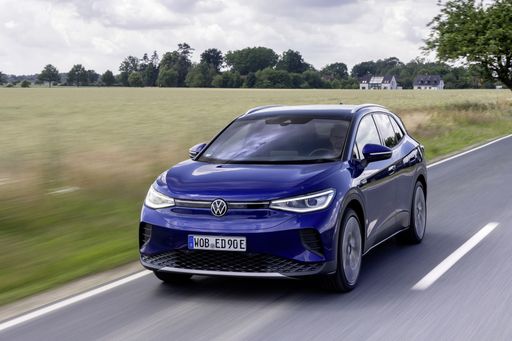
VW ID.4
Peugeot 3008
The Peugeot 3008 blends bold French styling with a surprisingly grown-up interior that makes even dull commutes feel a little bit special. Practical enough for family life yet lively to drive, it’s a clever all‑rounder that stands out from the crossover crowd without shouting for attention.
details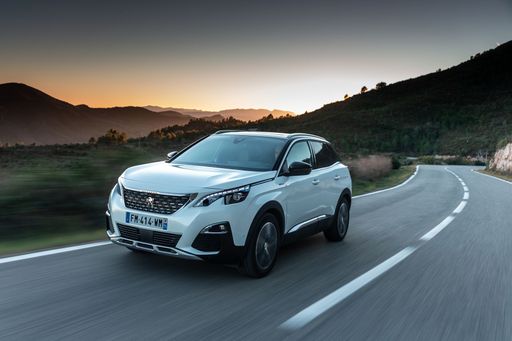
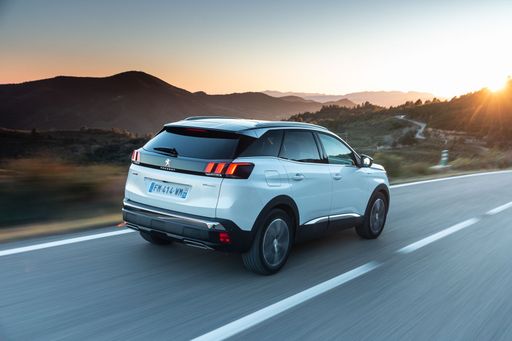

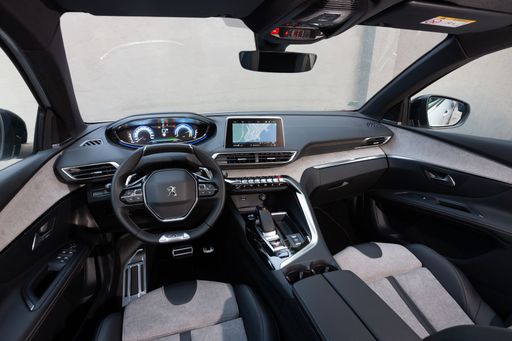
VW ID.4
The VW ID.4 is a calm, roomy electric SUV that turns everyday driving into a quietly confident experience, its practical packaging and smooth manners tailored perfectly for family life. Volkswagen's solid build and intuitive interior tech mean you get electric practicality without the sci‑fi theatrics, making the ID.4 a sensible, surprisingly likable choice for most buyers.
details
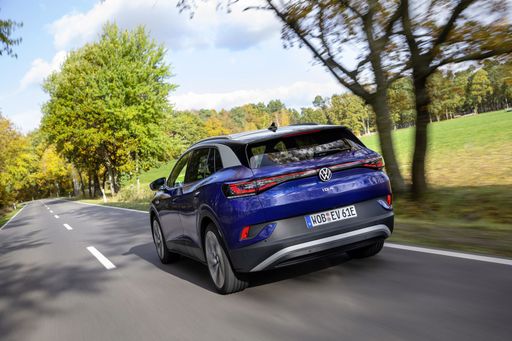
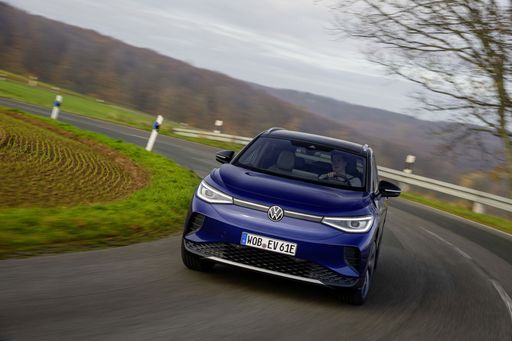
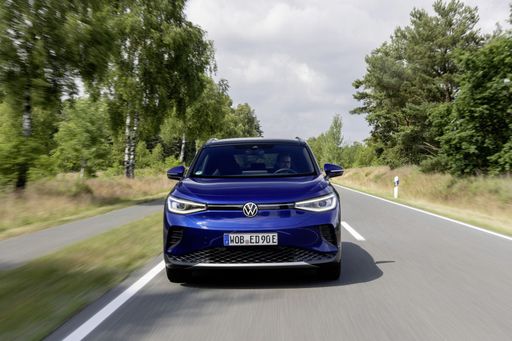
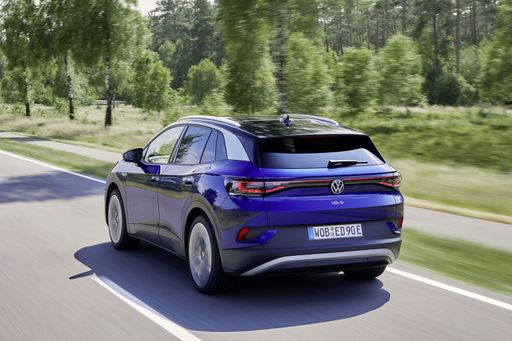

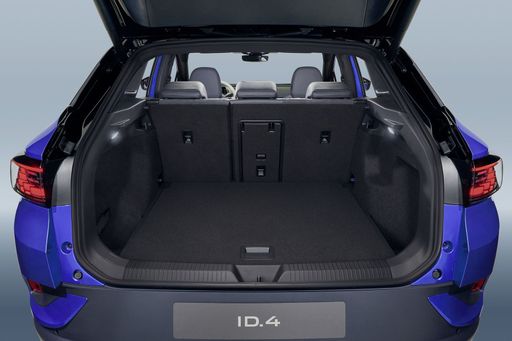
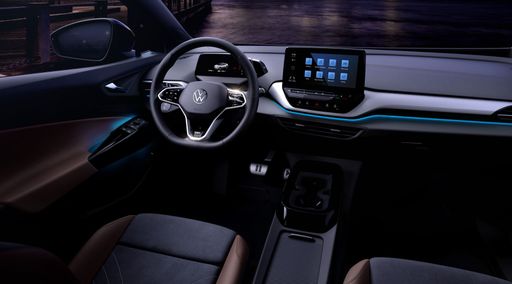
Costs and Consumption |
|
|---|---|
|
Price
35100 - 52000 £
|
Price
34600 - 47200 £
|
|
Consumption L/100km
2.4 - 5.4 L
|
Consumption L/100km
-
|
|
Consumption kWh/100km
16.9 - 17.6 kWh
|
Consumption kWh/100km
15.6 - 17 kWh
|
|
Electric Range
81 - 698 km
|
Electric Range
356 - 569 km
|
|
Battery Capacity
0.4 - 96.9 kWh
|
Battery Capacity
52 - 77 kWh
|
|
co2
0 - 121 g/km
|
co2
0 g/km
|
|
Fuel tank capacity
55 L
|
Fuel tank capacity
-
|
Dimensions and Body |
|
|---|---|
|
Body Type
SUV
|
Body Type
SUV
|
|
Seats
5
|
Seats
5
|
|
Doors
5
|
Doors
5
|
|
Curb weight
1648 - 2266 kg
|
Curb weight
1975 - 2248 kg
|
|
Trunk capacity
470 - 520 L
|
Trunk capacity
543 L
|
|
Length
4542 mm
|
Length
4582 - 4584 mm
|
|
Width
1895 mm
|
Width
1852 mm
|
|
Height
1641 mm
|
Height
1619 - 1634 mm
|
|
Max trunk capacity
1430 - 1480 L
|
Max trunk capacity
1575 L
|
|
Payload
432 - 467 kg
|
Payload
515 - 551 kg
|
Engine and Performance |
|
|---|---|
|
Engine Type
Electric, Petrol MHEV, Plugin Hybrid
|
Engine Type
Electric
|
|
Transmission
Automatic
|
Transmission
Automatic
|
|
Transmission Detail
Reduction Gearbox, Dual-Clutch Automatic
|
Transmission Detail
Reduction Gearbox
|
|
Drive Type
Front-Wheel Drive, All-Wheel Drive
|
Drive Type
Rear-Wheel Drive, All-Wheel Drive
|
|
Power HP
145 - 325 HP
|
Power HP
170 - 340 HP
|
|
Acceleration 0-100km/h
6 - 10.2 s
|
Acceleration 0-100km/h
5.4 - 9 s
|
|
Max Speed
170 - 220 km/h
|
Max Speed
160 - 180 km/h
|
|
Torque
230 - 511 Nm
|
Torque
310 - 679 Nm
|
|
Number of Cylinders
3 - 4
|
Number of Cylinders
-
|
|
Power kW
107 - 239 kW
|
Power kW
125 - 250 kW
|
|
Engine capacity
1199 - 1598 cm3
|
Engine capacity
-
|
General |
|
|---|---|
|
Model Year
2024 - 2025
|
Model Year
2023 - 2025
|
|
CO2 Efficiency Class
A, D, B
|
CO2 Efficiency Class
A
|
|
Brand
Peugeot
|
Brand
VW
|
What drive types are available for the Peugeot 3008?
The Peugeot 3008 is offered with Front-Wheel Drive or All-Wheel Drive.




